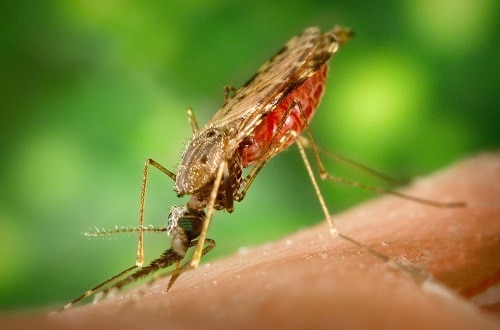
First-line malaria treatment fails for the first time in UK
pharmafile | January 31, 2017 | News story | Manufacturing and Production, Research and Development | UK, malaria
The key combination malaria therapy artemether-lumefantrine has failed to treat UK patients for the first time, suggesting that the parasite is evolving to become resistant to medical efforts.
According to reports in Antimicrobial Agents and Chemotherapy, the treatment failed when administered to four separate patients between October 2015 and February 2016; until now, there have been no other published accounts of the therapy failing in the UK. The patients were treated as normal, but symptoms re-emerged after a month; physicians were then forced to resort to alternative treatments for the four patients, all of whom fully recovered.
Malaria affects up to 2,000 UK patients annually and is contracted via a bite from infected mosquitos found in tropical regions.
Researchers at the London School of Hygiene and Tropical Medicine (LSHTM) analysed samples of the malaria parasite and determined that while this could be a sign of the disease’s evolution to become resistant to front-line treatment, the crisis point is still a way off, though the matter must be taken seriously and carefully monitored to avert future issues in treating the illness.
“It does feel like something is changing, but we’re not yet in a crisis,” explained LSHTM’s Colin Sutherland. “It is an early sign and we need to take it quite seriously as it may be snowballing into something with greater impact. There has been anecdotal evidence in Africa of treatment failure on a scale that is clinically challenging…We need to go in and look carefully at drug efficacy.”
Of the four cases, two were contracted through travel to Uganda, one to Liberia and one to Angola; cases of drug-resistance in malaria has shown not only that it is occurring across a wide and disparate area, but also that the resistance is not associated with one single strain of the disease, but is present in a number of different mechanisms.
Commenting on the published study, professor David Lalloo, dean of Clinical Sciences and International Public Health at the Liverpool School of Tropical Medicine, stated: “This is an interesting and well conducted study and again emphasises the incredible ability of the malaria parasite to rapidly evolve to become resistant to antimalarial treatment. It is too early to fully evaluate the significance of these findings but the paper highlights the need to be constantly vigilant when treating patients with malaria and larger studies are certainly needed to explore this issue further.”
Matt Fellows
Related Content

FDA approves Roche’s test for malaria in blood donors
Roche has announced that the US Food and Drug Administration (FDA) has approved its cobas …

WHO recommends new vaccine for prevention of malaria in children
The World Health Organization (WHO) has announced that it has recommended a new vaccine, R21/Matrix-M, …

Long COVID: 15 studies launched with £19.6 million government funding
The UK government has announced the launch of 15 new extensive studies, backed by £19.6 …







